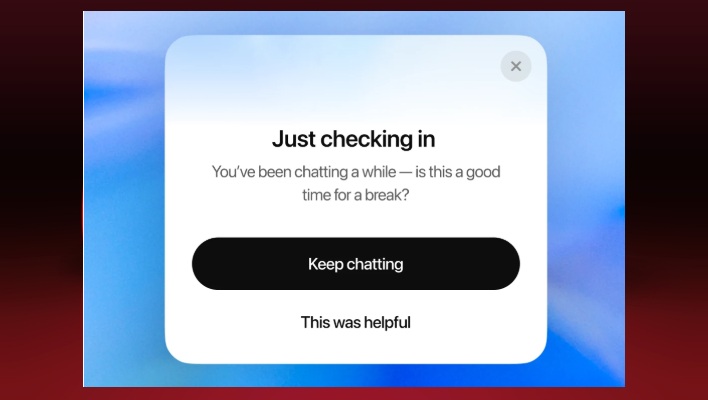ChatGPT Adds New Mental Health Features After OpenAI Admits It Fell Short
It also noted that there were times when its GPT-4o model failed to recognize signs of mental or emotional distress. OpenAI says it is constantly improving its models and "developing tools to better detect signs of mental or emotional distress so ChatGPT can respond appropriately and point people to evidence-based resources when needed."
The AI research company also pointed out that it has made some changes to promote healthy user habits and prevent emotional dependency on the AI chatbot. The company says ChatGPT will now provide gentle reminders to users during long and continuous sessions to encourage them to take needed breaks. A sample prompt could be, "You’ve been chatting for a while–is this a good time for a break?"

Also, for high-stakes personal questions, OpenAI says it's working on ChatGPT, so it will no longer give direct answers. Instead, it will guide users through their decision-making process. This feature is expected to roll out soon.
Additionally, OpenAI reveals that it's in collaboration with experts, including physicians, researchers, and an advisory group, to enhance how ChatGPT responds to mental or emotional distress. In a related development, the company is expected to launch its GPT-5 model soon.

